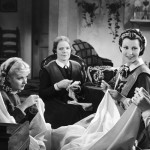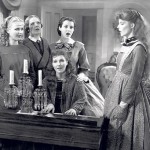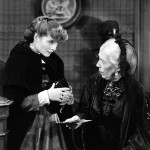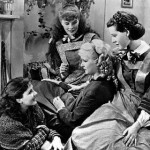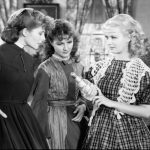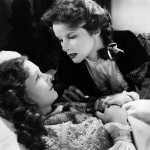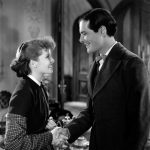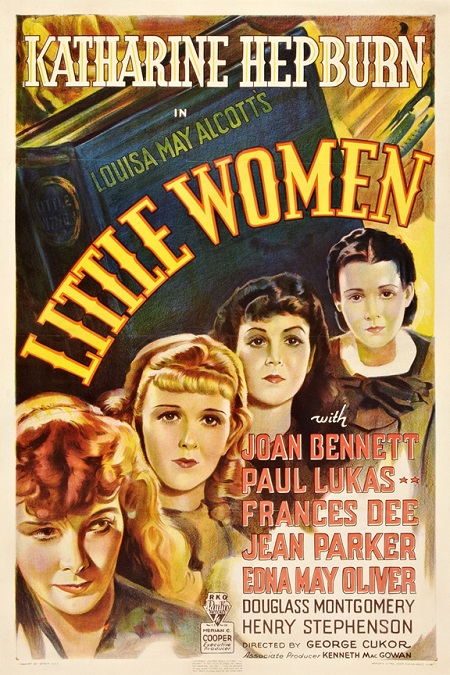
Little Women – 1933
This is the first adaptation of Little Women that I have seen and I have never read the book. So, the story is new to me. The film was based on Louisa May Alcott’s most beloved book of the same name. This was actually the third film adaptation of the novel, the first one being a silent film from 1917, and the second, another silent film from 1918. Two more film versions were to follow: one in 1949 and another in 1994.
It is a sweet story, but let’s be honest. It was as rather dull. There were never any real complications except for a death from weakness brought on by scarlet fever. There was no conflict, no bad guys, no one to blame, even, for the death. It made the story sad, but not terribly interesting.
The story follows the March family with Spring Byington playing the matriarch Margaret “Marmee” March. Her husband Robert is off fighting in the Civil War. The children are all girls, Margaret “Meg”, Josephine “Jo”, Elizabeth “Beth” and Amy, played respectively by Frances Dee, Katharine Hepburn, Jean Parker and Joan Bennett.
The daughters each have their own special slightly negative personality trait that they have to deal with, though the story is told mostly through the perspective of the second daughter, Jo. Meg is vain. Jo is a tomboy. Beth is shy. Amy is selfish. Aside from these little issues, the four girls are practically perfect in every way.
In the same respect, they each have their own special skill. Meg is a peace-maker. Joe is a writer. Beth plays the piano. Amy is an artist. The whole thing is starting to seem a little overly-fabricated. I guess what I am trying to say is that the characters were all pretty one-dimensional and slightly fake. But I’ll be the first to admit. That isn’t a flaw with the film. It is a flaw with the book.
If the sisters have any disagreements, they are always resolved quickly and sweetly. If anyone needs help, the girls are all going out of their way to do their part. Eventually, when they grow into young women, they develop romantic intentions with various men. But even then, there are few conflicts. The men they end up with are all perfect gentlemen who treat them perfectly. The relationships are all full of love and happiness.
Like I mentioned earlier, the biggest conflict in the film is when Beth gets sick with scarlet fever. Her first encounter with it does not kill her, but it leaves her severely weakened. Even that was handled gently. By the time she is ready to die, she is not only at peace with her impending death, but her family has had years to get used to the idea.
Aside from that, though, the biggest conflict in the film was when Aunt March takes Amy to Europe instead of Jo. Jo is in tears, but only for a moment. She is too happy for her sister to be upset about her own situation for long.
And speaking of Aunt March, once again, playing the crotchety old woman so well, we have Edna May Oliver. She was obviously typecast into this kind of a role, as she keeps popping up whenever a cantankerous old lady is called for. But she just does it so well!
So, nearly all of my review has been about the dullness of the plot. But I should also mention that the parts were all well cast and that the actors certainly did a fine job with the lack-luster material. Hepburn received top-billing, and she is always a pleasure to watch. But this was one of her earlier movies and I don’t think she stood out any more than the rest of the cast. But apparently her name was already enough to give the film a boost.
Like I said earlier, this was a sweet movie, but ultimately a dull one. Then again, it is one of those stories that is apparently immensely popular. It would have to be. How else would we have 5 separate movie adaptations over the years?
